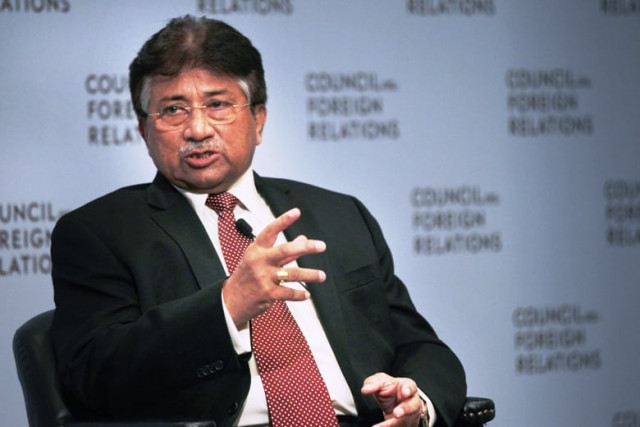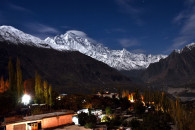LHC full bench constituted to hear Musharraf's plea against treason trial
Former military ruler had challenged the formation of special court the day it awarded him death sentence

Former military ruler Pervez Musharraf. PHOTO: FILE
The special court – comprising Justice Waqar Ahmed Seth, Justice Nazar Akbar and Justice Shahid Karim – sentenced Musharraf, 76, to death on December 17 after finding him guilty of high treason for abrogating the Constitution in 2007.
Justice Amir Bhatti and Justice Masood Jahangir will be the part of the three-member full bench which will be headed by Justice Mazahir Ali Akbar Naqvi.
The new bench will hear the petition on January 9, 2020.
Musharraf, in his petition, had requested the LHC to halt the special court proceedings in his absentia until he recuperates and appears before the court.
During the proceeding earlier this month, Justice Naqvi asked the LHC Chief Justice Sardar Shamim Khan to constitute a full bench to hear the petition rather than staying the special court.
If Musharraf dies, hang corpse at D-Chowk: Justice Seth
The detailed verdict, which was issued on December 19, stirred a controversy after Justice Seth's ruling that the former president should be hanged at Islamabad's D-Chowk for three days if he dies before his execution.
“We direct the Law Enforcement Agencies to strive their level best to apprehend the fugitive/convict to ensure that the punishment is inflicted as per law and if found dead, his corpse be dragged to the D-Chowk, Islamabad, Pakistan and be hanged for 03 days,” ruled Justice Waqar Seth – the presiding judge.
The treason charge against Musharraf stem from his imposition of emergency rule on November 3, 2007 after which dozens of judges were placed under house arrest or sacked, sparking widespread street protests.
Soon after the ruling, both the government and the army had expressed ‘anger’ over a specific paragraph 66 of the detailed judgement and termed it “unlawful”, “inhuman” and “unconstitutional”.



















COMMENTS
Comments are moderated and generally will be posted if they are on-topic and not abusive.
For more information, please see our Comments FAQ